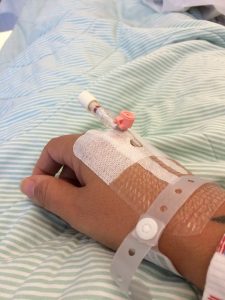Adult cancer patients who have a selenium deficiency can benefit from selenium supplementation during their radiotherapy and/or chemotherapy. This is the conclusion from a 2024 systematic review. The researchers examined the pooled data from 12 clinical studies enrolling 2,483 patients. The reviewed studies investigated the use of selenium substitution therapy in adult cancer patients undergoing cancer treatment [Krannich 2024].

The researchers defined selenium deficiency as serum or plasma selenium concentrations below 80 mcg/L or as whole blood selenium concentrations below 100 mcg/L. Furthermore, they regarded serum or plasma selenium levels over 130 mcg/L as replete status [Krannich 2024].

